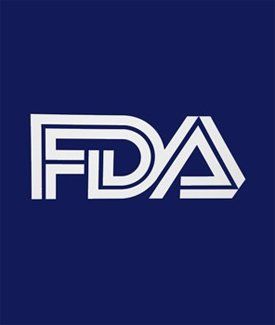FDA Approves First Gene Therapy for Pediatric Leukemia
The FDA has approved the first gene therapy available in the United States, tisagenlecleucel (Kymriah), for the treatment of pediatric and young adult patients with relapsed or refractory B-cell precursor acute lymphoblastic leukemia.
Tisagenlecleucel is the first gene therapy available in the United States

The US Food and Drug Administration (FDA) has approved the first gene therapy available in the United States, tisagenlecleucel (Kymriah; Novartis), for the treatment of pediatric and young adult patients with relapsed or refractory B-cell precursor acute lymphoblastic leukemia (ALL). Tisagenlecleucel is a chimeric antigen receptor (CAR) T-cell therapy, which uses a patient’s own immune cells to target their cancer.
Specifically, tisagenlecleucel targets CD19-positive ALL. Patients undergoing treatment with tisagenlecleucel have T cells collected and sent to a manufacturer where they are genetically modified with a receptor to target CD19 on the surface of the cancer cells. Once the cells are modified, they are infused back into the patients to kill cancer cells.
The treatment has been approved for patients aged up to 25 years.
“Kymriah is a first-of-its-kind treatment approach that fills an important unmet need for children and young adults with this serious disease,” said Peter Marks, MD, PhD, director of the FDA’s Center for Biologics Evaluation and Research. “Not only does Kymriah provide these patients with a new treatment option where very limited options existed, but a treatment option that has shown promising remission and survival rates in clinical trials.”
The approval was based on a multicenter trial of 63 pediatric and young adult patients with relapsed or refractory B-cell precursor ALL. Within 3 months of treatment with tisagenlecleucel, the overall remission rate was 83%.
Treatment with tisagenlecleucel was associated with some severe side effects in the trial. Therefore, tisagenlecleucel carries a boxed warning for cytokine release syndrome (CRS), a systemic response to activation and proliferation of CAR T cells that causes high fever and flu-like symptoms. In response, the FDA also expanded the approval of tocilizumab (Actemra; Genentech) to treat severe or life-threatening CAR T-cell–induced CRS in patients aged 2 years or older. This label expansion was based on clinical trial results that showed that 69% of patients had complete resolution of CRS within 2 weeks of 1 or 2 doses of tocilizumab.
“The approval of CAR T-cell therapy for pediatric leukemia marks an important shift in the blood cancer treatment paradigm,” said Kenneth C. Anderson, MD, American Society of Hematology president, of the Dana-Farber Cancer Institute in Boston, in a prepared statement. “We now have proof that it is possible to eradicate cancer by harnessing the power of a patient’s own immune system. This is a potentially curative therapy in patients whose leukemia is unresponsive to other treatments and represents the latest milestone in the shift away from chemotherapy toward precision medicine.”
“While the importance of CAR T-cell therapy cannot be overstated, this approval only pertains to a small population of children,” Anderson said. “More research is needed to make this therapy more effective for a broader population, to reduce the severe side effects that patients experience during treatment, and ultimately to find a broader application beyond blood cancers.”
Tisagenlecleucel has been approved with a risk evaluation and mitigation strategy, requiring hospitals and associated clinics that dispense the drug to be specially certified. Staff involved in the prescribing, dispensing, or administering of tisagenlecleucel must be trained to recognize and manage CRS and neurologic events.